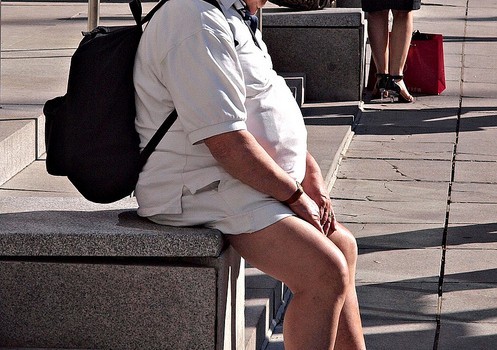Their had been rumors that men with low testosterone level are also linked to depression and obesity. But other experts contradict this belief. They don't suggest that low testosterone causes these conditions. In fact, it might be the other way around. That is, men with medical problems or who are in poor general health might then develop low testosterone.
Men with borderline testosterone levels have higher rates of depression and depressive symptoms than the general population, new research finds. The results will be presented Saturday, March 7, at ENDO 2015, the annual meeting of the Endocrine Society in San Diego.
“Over half of men referred for borderline testosterone levels have depression. This study found that men seeking management for borderline testosterone have a very high rate of depression, depressive symptoms, obesity and physical inactivity,” said principal study author Michael S. Irwig, MD, FACE, associate professor of medicine and director of the Center for Andrology in the Division of Endocrinology at George Washington University in Washington, DC. “Clinicians need to be aware of the clinical characteristics of this sample population and manage their comorbidities such as depression and obesity.”
Dr. Irwig and his colleagues studied 200 adult men between 20 and 77 years of age whose testosterone levels were borderline (between 200 and 350 nanograms per deciliter).
The researchers collected the men's demographic information, medical histories, medication use, and signs and symptoms of hypogonadism.
Using a score of 10 or higher on the PHQ-9, 56% of the study participants had significant depressive symptoms, known diagnosis of depression and/or use of an antidepressant. Their rates of depressive symptoms were markedly higher than the 15 to 22% in an ethnically diverse sample of primary care patients and the 5.6% among overweight and obese US adults.
The population also had a high prevalence of overweight (39%), obesity (40%) and physical inactivity; other than walking, 51% of the men did not engage in regular exercise. The most common symptoms reported were erectile dysfunction (78%), low libido (69%) and low energy (52%).
Founded in 1916, the Endocrine Society is the world's oldest, largest and most active organization devoted to research on hormones and the clinical practice of endocrinology. Today, the Endocrine Society's membership consists of over 18,000 scientists, physicians, educators, nurses and students in 122 countries. Society members represent all basic, applied and clinical interests in endocrinology. The Endocrine Society is based in Washington, DC.
Restoring testosterone to youthful ranges may confer a wide array of benefits to men affected by type 2 diabetes. The reported benefits of testosterone administration in these men include improved glucose homeostasis (balanced sugar levels), reduction in abdominal fat, and improved erectile function. Likewise, scientists believe that testosterone replenishment may help reverse some of the key biochemical abnormalities that underlie metabolic syndrome, such as insulin resistance and central obesity.
Please Read this Article at NaturalBlaze.com
Photo Source: Sandra Cohen-Rose and Colin Rose





Leave a Reply